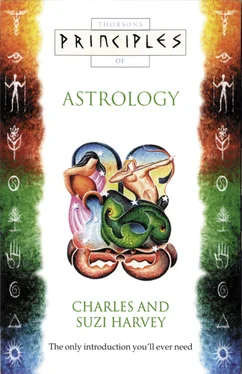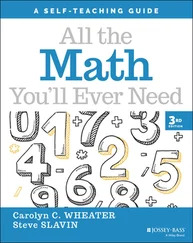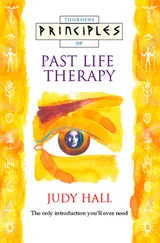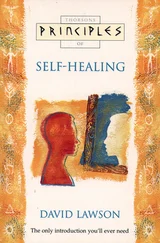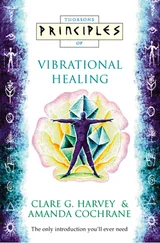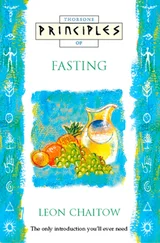If we look ahead it is already possible to say that Astrology seems destined to lead all other branches of knowledge out of the blind alley of unspiritual rationalism and materialism … and effect the reconciliation that Science so ardently desires with Belief.
At the present time, a leading contemporary philosopher Dr Richard Tarnas, author of the much-acclaimed history of Western thought, Passion of the Western Mind , has said he believes that:
Psychology textbooks of the future will look upon modern psychologists working without the aid of astrology as being like medieval astronomers working without the aid of a telescope.
OBJECTIONS TO ASTROLOGY
HOW COULD ASTROLOGY POSSIBLY WORK?
Whether you are a true believer, an open-minded enquirer, or a dyed-in-the-wool sceptic, astrology presents us with a problem. How could it possibly work? What possible connection can there be between the positions of the planets at the time of birth and our character and destiny, or between planetary movements and the movements of the stock market, or major political changes?
Astrology certainly runs contrary to the approach of science over the past 300 years and more. Scientific success has bred arrogance, and media pundits with only the dimmest understanding of the history of ideas will speak derogatorily of astrology as a throwback to superstitious un-reason. In fact, of all subjects astrology still addresses the inherent reasonableness of life, as we shall see in the next chapter.
Different newspapers give different forecasts from the same information. All too true. Most newspaper columns are light-hearted fun and pour out ‘thoughts for the day’ without too much reference to the cosmic climate. Even the best and most conscientious of newspaper astrologers is faced with trying to reduce a cosmic ocean of information into a single sip. This is soundbites gone mad, and horoscope columns imply that they contain far greater personal information than they could ever supply. That said, a particular period of time will, on average, be more stressful or advantageous for certain signs. Prevailing surges in energy or tense patterns will tend to be picked up by some types rather than others. But for any particular individual, the ‘signals’ are likely to be swamped out by more personal factors.
THE GRAVITY OF THE MIDWIFE
Scientific critics of astrology say that it is absurd to believe that the planets can have any effect on our character or destiny since the gravitational mass of the midwife in attendance at birth is far greater than any possible pull of the planets. This, like many arguments put forward by physicist critics of astrology, assumes that astrology is measuring material causes. In fact, as we shall see in the next chapter, it is clear that astrology measures the unfoldment of formal cause in the cosmos.
For example, the disillusionment with Communism and the impulse for political change which swept through Europe in 1989 as Jupiter opposed a tightening Saturn-Neptune conjunction had no physical gravity. The intellectual gravitas of these compelling ideas was more compelling than any number of secret police or border guards. The ‘ideas of the time’ swept all before them far more effectively than any hurricane or tidal wave. For astrologers, the cosmic configurations of that time ‘birthed’ a decisive new reality for the world.
PRECESSION OF THE EQUINOXES
The signs of the zodiac used by astrologers in the West are no longer the same as the constellations in the sky of the same name. This is perfectly true and all astrologers are aware of this fact. The Western tropical zodiac is measured from what astronomy calls The First Point of Aries, the point where the Sun crosses the Equator and follows the seasonal cycle. It measures unfolding life in relation to our Earth. The Fixed Zodiac of the Constellations measures out a larger more cosmic cycle of reference. Whilst this book focuses on the tropical zodiac, both frames of reference have their place in a larger astrology. An analogy might be that someone might be a Sun Leo in terms of their local political scene, a king: a big fish in a small pond. But when they graduate to national politics they get measured against another scale and may be a Sun Cancer, and a much less self-assured creature, a crab in a much vaster ocean.
THE STARS IN THE CONSTELLATIONS ARE OFTEN NOT PART OF THE SAME STAR SYSTEM
Astrology is not dependent on the constellations being all of a piece. No-one looking at the constellations and asked to make pictures would see the animals and images that they are supposed to represent. It is clear that the ancients gave the names in order to summarize and symbolize their experience of planets moving through that part of the sky. The signs of the zodiac, whether tropical or fixed, tell a story of unfolding ideas which follows a particular sequence. In fact, there is also a branch of astrology which studies the significance of specific Fixed Stars. Again, the meaning of individual stars is based on observation and is in no way dependent upon it being part of a particular constellation.
HELIOCENTRIC RATHER THAN GEOCENTRIC
Since Copernicus it has been known that the Earth moves around the Sun and not vice versa. It is argued that astrology is Earth-centred and seems to assume that the planets move around the Earth. Astrologers are well aware of the distinction. In practice we live on the Earth and not the Sun, and in terms of the unfolding of planetary ideas for humankind it is therefore the Earth-centred view that is most relevant. There is, however, much to be learned from heliocentric astrology, which is a whole area of astrology in its own right.
Most objections to astrology come from individuals who can think only in terms of physical, material causes. Anyone who has worked in astrology for any length of time knows that astrology has to do with an algebra of meaning and consciousness rather than purely of matter.
Figure 1The top diagram shows a top-down view of the solar system with the planets orbiting the Sun in the centre. This is the helio-centric view. The lower diagram shows how these same positions appear when seen from the earth as centre, the geocentric view.
PHYSICAL THEORIES ABOUT ASTROLOGY
All that said, there are still some astrologers who can only feel comfortable with material causes. And there is a range of theories that have been elaborated to explain how astrology might work. The analogy of the Moon and ocean tides is often invoked. The human body is over 90 per cent water. Do the planets have minute tidal effects within our bodies?
Related to this theory is Dr Percy Seymour’s eloquent resonance theory, which points out that resonance can give wave forms power out of all proportion to their inherent energy. Classic examples of this are the singer who can break a glass at a distance by singing the glass’s ‘note’ so that it vibrates itself to pieces. Likewise an army marching over a bridge has to break step so as not to set the bridge vibrating to its own natural frequency and make it fall apart. In this model, the planets in their movements are setting up wave forms with which the child resonates and ‘tunes in’, thereby establishing certain types of behaviour.
Endocrinologist Dr Frank MacGillion has put forward endocrine secretions from the pineal gland as a possible mechanism, pointing out numerous studies which highlight the importance of the state of the day-night cycle at the time of birth and its effects on melatonin secretions. Dr Michel Gauquelin, the French psychologist and statistician, whose work is cited above, postulated a genetic predisposition, whereby a baby with a martial genetic make-up would be tuned to Mars orbit.
Читать дальше
